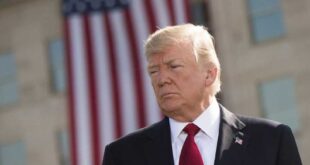After groundbreaking revelations of Panama papers and other documents pointing to tax-evasion efforts of the global elite, another new revelations namely pandora papers has surfaced raising furore about the secret wealth of the global financial elite, leaders and public officials of numerous countries. This revelations indicate an evident trend among the elite across countries to shield their illicit wealth from the probing eyes of authorities and also discloses a big shady financial affairs to which the general mass had been conveniently kept unaware of.
The Pandora Papers has been revealed by the International Consortium of Investigative Journalists(ICIJ) which involved 600 journalists from 150 media outlets in 117 countries. The dump of more than 11.9 million records, tantamount about 2.94 terabytes of data, came five years following the “Panama Papers” that revealed how money was concealed by the wealthy in ways that law enforcement agencies could not detect. The agency leaked files from 14 offshore service providers which has connection with more than 330 public officials, including 35 world leaders underscoring the disproportionate representation of governance elite in the list.
The offshore financing has become a increasingly ploy of the transnational elite as this provide them with tool to conceal their identity and also give them the window to utilize their ill-gotten illicit money to invest. The process of such financing is complex. Especially, financing in a foreign country is operated through a legal process where a tax-compliant individual of any country have to abide by the due procedures in order to invest his money in another country .However, corruption run rampant among the public officials and the leaders of many countries which put them at a disadvantaged position in utilizing their money. Therefore, they often take resort to devious methods in order to make their financial investments in a foreign country discreet from the responsible authorities .
Against this backdrop, a new clandestine economy has taken shape to cater to the demand of the offshore financing. This economy hinges on the countries where the tax regulation are often lax and where the authorities doesn’t impose stringent financial conditionalities with regards to financing and other economic activities. A group of unscrupulous transnational individual exploit these loopholes in those countries and abet with the errant individuals to conceal their wealth and identity and thereby act as an accomplice in illicit financial gains and tax-evasion.
Although these illicit affairs prevailed since 1970,it was not until the revelation of Panama papers when these outlawed activities had been divulged to the public and had evoked considerable uproar among the citizens. The backlash following the revelation panama paper was such that it had led to toppling of political leaders of different countries most prominently Nawaz Sharif in Pakistan. These revelations therefore, facilitate the accountability of errant elite of the countries and also make general people cognizant of the illicit activities of their officials and leaders. Besides, these revelations also dissuade the potential rowdy activities by the elite as they are fearful of such revelation and prospective reputational risks.
While the whole world is grappling with a crippling pandemic due to a appalling lack of resources to combat the virus ,such revelations is worrisome as it points a grave injustice to general people who are dispossessed of the basic necessities and services. Revenue is one of the fundamental sources of government earning. Often, revenue is commensurate with the earning of the individual which facilitates in the fairness and equitability of the revenue system. Besides, the revenue process also ensure the accountability of earning and investigate the legality of earning of individual. Therefore, money earned from shady sources through corruption and outright embezzlement can’t be utilized domestically. This prompts the unprincipled elite to evade tax and other liabilities and funnel to foreign tax havens .However, these activities inflict severe damages to domestic economy due to two reasons. Firstly, when a person can channel money transnationally to such havens are motivated in future to engage incremental corrupt activities to make more financial fortune. This, propels incentivizes increasing corruption which is detrimental to the economy and society of a country. Secondly, this activities also translate to tax-evasion dispossessing the citizens of the benefits of the revenue and thereby deteriorating government spending in areas of health, education and other indispensable services which makes people susceptible to the any shock such as epidemics as has been blatantly revealed by the Covid-19 pandemic. Moreover, such transnational financial activities isn’t innocuous rather it involves far-reaching socio-economic consequences.
What’s more appalling is the fact that the people embroiled in these activities are the very people entrusted with advocating public interest and shielding people from the adversities. Therefore, their involvement in such nefarious activities, as has been revealed by the Pandora’s Papers that features the public officials and political leaders, is indicative of a deep predicament of governance in these countries. Besides, these revelations also unmask the feigned benevolence of the country’s elites.
A state is a social contract which is devised and driven by a reinforcing social contract between state and the individual. State is represented by its institutions and its apparatuses while citizen binds himself with the state through providing allegiance to the state in exchange of a proportionate guarantee from the state about safety and guarantee from the state. Revenue serves as a fundamental mechanism by which state ensure accountability, undertake redistributive activities, ensure different essential services. Therefore, revenue ensure fundamental rights of the citizens of the state .However, when the powerful and wealthy quarters of the state engage in corrupt dealings and deliberately evade the revenue system, it inflicts a severe harm to the general people as they are deprived of the basic services. Therefore, such instances of tax evasion and shady activities revealed by the Pandora box points to a steady erosion of the social contract between the state and the individual. Besides, this affair is also indicative of emergence of greedy transnational elite who are free of accountability from their government and coordinate transnationally to accumulate greater wealth and their shady activities transcend the borders of state.
While any connection of any Bangladeshi citizen in the leaked documents is yet to be ascertained, it is however indubitable that there are numerous Bangladeshi elite predominantly civil servants who are actively linked with similar kind of nefarious money-laundering activities. In Bangladesh, corruption is unbridled as there is sheer lack of accountability and oversight of the activities of public officials. While government has launched numerous attempts at whitening the black money, there is however still considerable undocumented wealth own by country’s rowdy elite. Therefore, they exploit the opportunities of illicit transfer of the money to the countries where regulation are lax. This money ,however, represents embezzlement of public funds and corruption. This facts aren’t conjectural anymore as the existence of Begum Para has adequately shed light on the contours of transnational capital flight from Bangladesh.
Moreover, the revelations of Pandora Papers unravels the shady business activities of transnational elites who operate across nations and funnel their money to the tax havens where the regulations are often lax. While the developments has elicited enormous public furore for the dramatic effect, it however points to grim situation of governance marked by corruption, greediness and lack of accountability by public authorities who are ironically entrusted with the responsibility to safeguard public interest. Therefore, these shady activities inflict a severe damage on the state’s revenue and erode state’s resources in rendering services to its citizens. Against this backdrop, these revelations contributes to good governance by disclosing the illegal activities and also by subjecting elite activities to public criticism. Moreover, these revelations also underscore a pressing need of a transnational infrastructure to coordinate global governance efforts in order stem the tide of off-shore financing.
 Geostrategic Media Political Commentary, Analysis, Security, Defense
Geostrategic Media Political Commentary, Analysis, Security, Defense





